How to motivate a lazy child in school
How to Help Your Child Get Motivated in School
If you have a child who is struggling in school and doesn’t seem to be motivated to make an effort, the first thing you want to do is explore whether there is some obstacle getting in his way. Learning issues, social challenges, attention or emotional problems can all cause kids to disengage academically.
But not all kids who are underperforming in school—clearly not living up to their potential—have a diagnosable problem. And there are a number of things parents can do to help motivate kids to try harder.
Get involvedAs a parent, your presence in the academic life of your child is crucial to her commitment to work. Do homework with her, and let her know that you’re available to answer questions. Get in the habit of asking her about what she learned in school, and generally engage her academically. By demonstrating your interest in your child’s school life, you’re showing her school can be exciting and interesting. This is especially effective with young kids who tend to be excited about whatever you’re excited about. Teenagers can bristle if they feel you are asking too many questions, so make sure you are sharing the details of your day, too. A conversation is always better than an interrogation.
Likewise, it’s important to stay involved but give older kids a little more space. If you’re on top of your daughter all the time about homework, she may develop resistance and be less motivated to work—not to mention the strain it will put on your relationship.
Many parents are nervous about rewarding kids for good work, and it’s true that tangible rewards can turn into a slippery slope. But there are ways to use extrinsic motivation that will eventually be internalized by your kid. “Kids respond really well to social reinforcers like praises, hugs, high fives, and those kinds of things,” says Laura Phillips, PsyD, a neuropsychologist at the Child Mind Institute. “Then they start to achieve because it feels good for them. ”
”
Ken Schuster, PsyD, a neuropsychologist at the Child Mind Institute encourages parents to use rewarding activities that would have probably occurred either way, but placing them after a set amount of time doing homework. He suggests treats that are easy to provide but that your child will enjoy, such as going for ice cream or sharing a candy bar. He also recommends breaking work up in chunks and using small breaks as rewards for getting through each chunk.
Reward effort rather than outcomeThe message you want to send is that your respect hard work. Praising kids for following through when things get difficult, for making a sustained effort, for trying things they’re not sure they can do successfully, can all help teach them the pleasure of pushing themselves. Praise for good grades that come easily can make kids feel they shouldn’t have to exert themselves.
Help them see the big pictureFor older kids who have developed an understanding of delayed gratification, sometimes simple reminders of their long-term goals can help push them. It can help many high school seniors who slack off after getting into college to remind them that they could lose their acceptance if their grades drop too much, or they might not be prepared for college courses. “Linking school up with their long-term goals can make the work feel more personally fulfilling,” explains Dr. Phillips.
It can help many high school seniors who slack off after getting into college to remind them that they could lose their acceptance if their grades drop too much, or they might not be prepared for college courses. “Linking school up with their long-term goals can make the work feel more personally fulfilling,” explains Dr. Phillips.
No one can get A’s on every test or perfect scores on every assignment. While kids need encouragement and it’s healthy to push them to try their best, know that setbacks are natural. Sometimes the only way kids learn how to properly prepare for school is by finding out what happens when they’re unprepared.
Get outside helpOne way to take a little tension away from your relationship with your child is finding an older student (either at their school or a nearby college) to help him out with work. Most will charge pretty low rates, and the fact that they’re closer to your kid’s age may make it more likely he’ll listen to what they say.
“Homework was a source of conflict for us,” says Elizabeth, whose son Alex has ADHD. Elizabeth hired a few Barnard students to help Alex do his homework on certain nights, she recalls. “He behaved a lot better with them, and it was money well spent for me because I wasn’t fighting and I wasn’t stressed out.”
Make the teacher your allyAnother one of the most important things you can do for your child is to work with his teacher. The teacher might have additional insight about how to motivate your child, or what he might be struggling with. Likewise you can share any strategies or information that you have.
When her son was in lower school and only had one teacher, Elizabeth would call his teacher before the first day, introducing herself and alerting the teacher that her son had ADHD and that he found it hard to focus. She would give the teacher little tips that she had found were useful with Alex: Writing multi-step directions on the board, tapping him on the shoulder while walking past to make sure he was paying attention, and other small tweaks that would be useful to any young child but are especially essential to one with ADHD.
“Make sure that both school and home are of one accord,” stresses Kristin Carothers, PhD, a clinical psychologist. Dr. Carothers often sets up a system she calls the daily report card. With this system, the child gets points from his teacher for things like completing work and following directions the first time he gets them. Then he brings those points home, where his parents give him small rewards, such as extra time on the iPad or playing a game together.
Get support for yourselfIt can be just as frustrating to watch your child withdraw from school as it can be difficult for the kid himself to focus. Elizabeth says that she often feels judged as a parent for having a son who struggles so much in school.
Some schools have support groups for parents of kids who are less motivated, and if your child’s school doesn’t, Elizabeth encourages setting one up. “It’s very comforting to hear that you’re not alone,” she says. “It’s also helpful to hear people who have gone ahead of you talk about how to navigate the school’s system, find a therapist, and talk to teachers. ”
”
“If you’re feeling yourself getting really angry or frustrated with your kids, take a step back,” Dr. Carothers recommends. “Put things into context.”
It’s also important to keep your goals in perspective: Your child may not become a star student. Make sure to focus on the effort she puts in and commitment she shows instead of the outcome. If you expect perfect achievement from a child who struggles in school, you’ll drive yourself crazy.
“I’m not trying to get my child to be someone he’s not,” Elizabeth says about her efforts to help her son. “I just want him to reach his potential.”
How to Motivate the Unmotivated Child
Over the years, many parents have asked me why their kids aren’t motivated and what they can do about it. How can you get your child to be more motivated? To do better in school? To even go to school?
The important thing to remember is this: your child is motivated. They’re just motivated to resist you and others when they do not want to do something. The key is to learn how to turn their negative motivation into a positive one.
The key is to learn how to turn their negative motivation into a positive one.
Lack of Motivation is a Form of Resistance
When kids won’t get out of bed, won’t do their homework or school assignments, or won’t get involved in activities, it’s important for parents to realize that there is motivation in the child. But the motivation is to resist. The motivation is to do things their way, not yours. The motivation is to retain power.
When kids feel powerless, they try to feel powerful by withholding. A child or teenager who feels very powerless will stay in bed, not go to school, avoid homework, sit on the couch, and withhold overall involvement because it gives her a sense of being in control.
To the parent, the behavior looks completely out of control. But the child sees it as the only way to have control over what’s going on around him.
You’ll see it when you ask your child a question and he doesn’t answer, but you know he heard you. What’s that all about? That’s a child withholding an answer to feel powerful. When he says, “I don’t have to answer you if I don’t want to,” you see it as a lack of motivation. He sees it as a way to win control over you.
What’s that all about? That’s a child withholding an answer to feel powerful. When he says, “I don’t have to answer you if I don’t want to,” you see it as a lack of motivation. He sees it as a way to win control over you.
All Kids are Motivated by Something
I want to be clear about this point: everyone is motivated. The question is, motivated to do what? If a child looks like he’s not motivated, you have to look at what he’s accomplishing and assume that this is what he’s motivated to do.
So part of the solution is getting him to be motivated to do something else. To assume that the child is unmotivated is an ineffective way of looking at it. He is motivated. He’s simply motivated to do nothing. In this case, doing nothing means resisting and holding back to exercise control over you.
Kids Resist Because They Lack Problem-Solving Skills
The child who uses resistance as a form of control lacks both social skills and problem-solving skills.
They don’t have the social skills to know how to talk to other people, how to be friendly, and how to feel comfortable with themselves.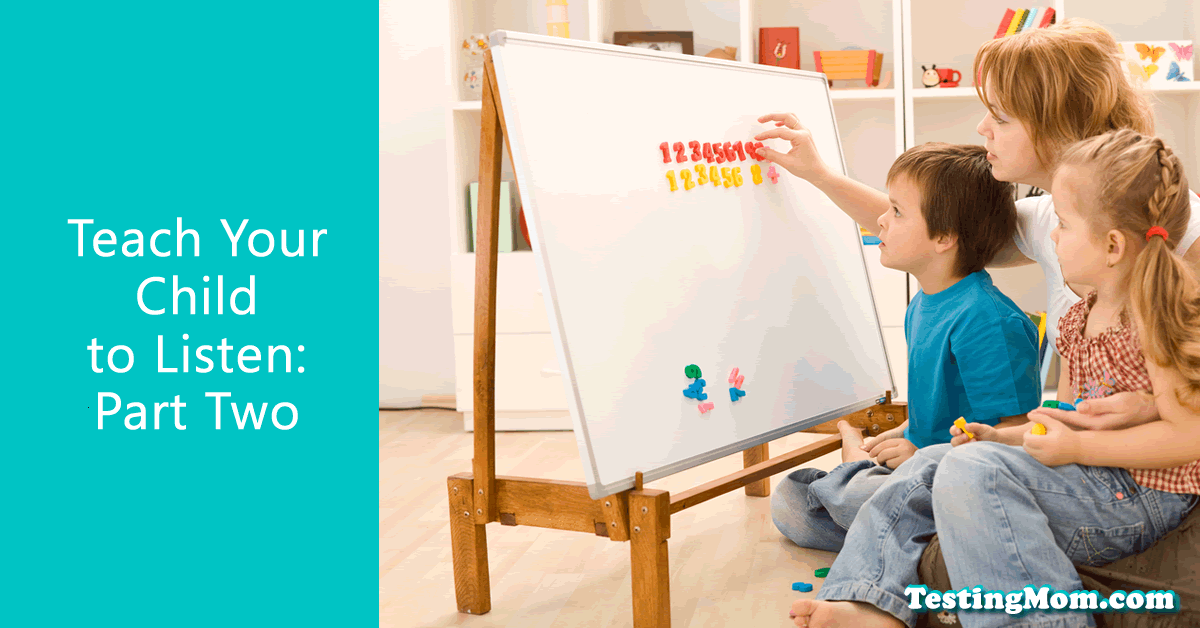 Also, they don’t have the problem-solving skills to figure out what people want from them, how to deal with other people’s behavior, and how to meet expectations and demands.
Also, they don’t have the problem-solving skills to figure out what people want from them, how to deal with other people’s behavior, and how to meet expectations and demands.
These are basic skills we all have to learn in order to be successful as adults.
If continually resisting is how a child tries to solve problems, then parents will have a hard time until they teach the child how to solve problems appropriately.
The first step in teaching kids problem-solving skills is to understand that these kids are not helpless victims. Instead, they’re simply trying to solve problems in an ineffective manner.
Don’t Argue or Fight With Your Child About Motivation
Very often these kids are motivated by the power struggle. They find different ways to have that struggle with their parents. The job of the parents, therefore, is to find other ways for the child to solve the problem that’s causing the power struggle.
But if parents don’t have those other ways then the power struggle continues with no end in sight.
If you’re fighting day after day with a kid who won’t get out of bed, you’re never going to solve that problem. Because even if he gets out of bed then he won’t brush his teeth. And even if he brushes his teeth then he won’t comb his hair. Or he won’t wear clean clothes, or he won’t do his homework.
Understand that when you yell at your child for lack of motivation, you’re giving their resisting behavior power. So don’t yell. Don’t argue. Don’t give their resisting behavior power.
I understand that parents get frustrated—that’s normal. And sometimes you will lose your calm, even when you know better.
The point I want to make here is that yelling and fighting won’t solve the problem. If you’re yelling and fighting over these issues, you’re giving him more power in the struggle, and you don’t want to do that. Here’s what to do instead.
Be Clear, Calm, and Give Consequences for Your Child’s Behavior
Make the situation clear for the child. Use “I” words. Say the following:
Say the following:
“I want you to get up out of bed and get ready for school.”
“I want you to do your homework now.”
Then leave the bedroom. If the kid doesn’t do it, then there should be consequences. There should be accountability.
If your child says, “I don’t care about the consequences,” ignore her. She will tell you she doesn’t care just as a way to feel in control. Or, she may not care now, but as consequences get applied consistently, she will eventually see compliance as a better alternative to consequences.
Therefore, give consequences. And don’t worry if the kid doesn’t like it. You are not your child’s friend, you’re their parent.
Related content: Unmotivated Child? 6 Ways to Get Your Child Going
By the way, if your child doesn’t get out of bed, he shouldn’t be doing anything else. He shouldn’t get to play video games. He shouldn’t spend four hours in front of the TV. If he’s too sick to go to school, he shouldn’t be going out of the house. These rules should be set and enforced consistently.
These rules should be set and enforced consistently.
Give Effective Consequences
Understanding what is and what is not an effective consequence is critical. The right consequences actually motivate your child to good behavior. They put you back in control and teach your child how to problem-solve, giving your child the skills needed to be a successful adult.
Know that effective consequences are not punishments. Indeed, I say all the time that you can’t punish your child into behaving better.
All parents should read my article on how to give kids consequences that work. And take a look at my sample video from The Complete Guide to Consequences.
Let Your Child Experience Natural Consequences
I would always tell parents in my office that you have to have the courage to let her experience the consequences of her behavior. It takes a lot of courage for a parent to step back and say:
“Okay, you’re not going to do your homework, and you’re going to get the grades that reflect that. ”
”
But in these cases, it can help to let the child experience the natural consequences of resistance. You don’t let the kid watch TV. You say:
“Homework time is from six to eight. And if you don’t want to do your homework during that time, that’s fine. But you can’t go on the computer, you can’t play games, and you can’t watch TV. If you choose not to do your homework, that’s your choice. And if you fail, that’s your choice too.”
Remember, natural consequences are an important part of life. That’s why we have speeding tickets. A speeding ticket is a natural consequence. If you go too fast, the policeman stops you and gives you a ticket. He doesn’t follow you home to make sure you don’t speed anymore. He lets you go. It’s your job to stop and take responsibility. If you don’t, you’re going to get another ticket fifteen minutes later.
Natural consequences help people take responsibility, and they can be used to help kids take responsibility for things like going to school, participating in class, and doing homework.
Don’t Forget to Use Rewards
Along with the plan to let her experience the natural consequences of her decisions, build in rewards for success if she does make the right decision.
For example, if my son failed a test, there was no punishment. But if he passed, there was a reward. It was very simple. We rewarded A’s and B’s. We didn’t take anything away for C, we just didn’t reward it.
So my son eventually strived to have A’s all the time. So with kids who resist, it’s important to have a rewards system as well as a consequence system.
Be Patient and Persistent
Calmly and consistently using effective consequences is your fastest and best way to get your child motivated. Just be patient and persistent as consequences do their job and your child begins to learn better problem-solving skills. And know that the vast majority of kids come around and get motivated once they are held accountable in a meaningful way.
Related content: Motivating Underachievers: 9 Steps to Take When Your Child Says “I Don’t Care”
Psychologist's advice: There are no naturally lazy children
A healthy child will not be lazy unless his parents force him to.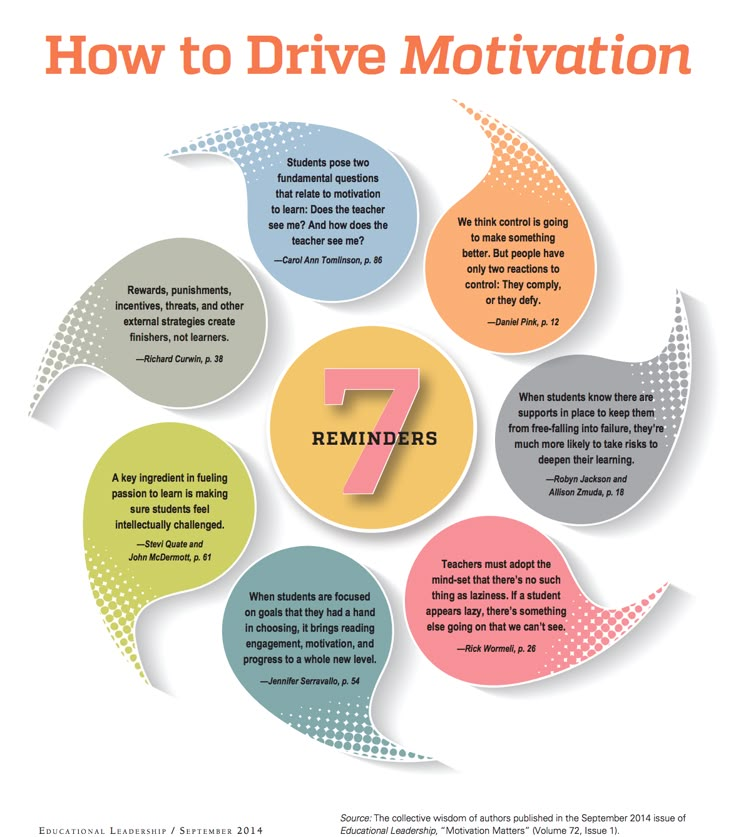
"Children's laziness is only an appearance, a fiction, and not a real phenomenon; I looked at it more closely - and it disappeared." How do you, strict and categorical mothers and fathers, such an opinion of the famous Russian teacher Peter Kapterev? He believed that behind the words "laziness", "to be lazy" there are absolutely specific reasons for the child's unwillingness to do this or that business, moral or physical, and parents should understand and eliminate them - then the word "laziness" will become mythical, non-existent.
The phlegmatic is not to blame
There are no naturally lazy children. Every healthy child in early childhood is quite active, you only hear from him: "I myself", he gets angry when he is not allowed to do something on his own. Passivity, inactivity - which parents also see as manifestations of laziness - most often indicate that the child is simply unhealthy.
In younger schoolchildren, inability is often mistaken for laziness. The child has not yet learned how to properly organize his work: he grabs one thing, then another, nothing works out for him, he gets tired, disappointed, gives up everything ... As a result, the lessons are done somehow and over time he is more and more reluctant to take for them: why do something if it still doesn’t work out?
The child has not yet learned how to properly organize his work: he grabs one thing, then another, nothing works out for him, he gets tired, disappointed, gives up everything ... As a result, the lessons are done somehow and over time he is more and more reluctant to take for them: why do something if it still doesn’t work out?
Sometimes pronounced manifestations of temperament are mistakenly called laziness. A phlegmatic baby is inactive, slow, sways for a long time. It is useless to push him and accuse him of laziness, all the same, he will work at the pace dictated by his inner warehouse. It's not the man's fault that he can't work, like those brisk guys around him, who have everything in their hands on fire. But at the same time, the same choleric people who need vigorous activity are also considered lazy, and it is difficult for them to do boring, monotonous work. Playing for them is a real thing, and collecting scattered toys in the sandbox is a deadly longing.
Praised like leaps and bounds
Sometimes you just want to yell, or even swing your belt at a child who is "cutting" into a computer shooter, while you are waiting for him to make efforts to correct twos. Will it just help? It is easy to force a person to fulfill your will, but how to break mother laziness?
Will it just help? It is easy to force a person to fulfill your will, but how to break mother laziness?
Yard, sandbox. Everyone is busy here. Someone is loading a dump truck with sand, others are making Easter cakes, collecting pebbles... In childhood, playing is real work. And with what zeal children strive to achieve their plans, to take, for example, the same first step! Is it possible to suspect of laziness a child who is trying and trying to dig through the crumbling and crumbling underground passage in the sandbox? Why not then make the same child take out the trash or solve a math problem?
...This is a disaster! Our five-year-old Natalya decided to help her grandmother wash the dishes! So, like last time, there will be a puddle near the sink, elbows are wet, and it’s good if all this drags on for only half an hour and the dishes remain intact ... play it, you won't do it right anyway! Wipe up after you!
And the child dutifully goes where he was sent. Read a book, play or do homework. And so I wanted to help, to do something myself ...
And so I wanted to help, to do something myself ...
At the age of three or four, children strive for independence - so give them the opportunity to enjoy it! Of course, at first it turns out badly - but in order to learn something, you need to start doing it! Here the baby puffs, sniffs, but at the same time he crawls along his bed, refuels it. Praise him even for the smallest success! And let him finish the job. He brought it, washed the dishes, put the pillow back in place - appreciate his work, the children grow by leaps and bounds on praise.
He will continue to do the same housework with pleasure if he increases his importance in his own eyes over and over again, receiving bonuses in the form of praise or something more important from adults. He gets the motivation to work, what could be more important than that?
Further - more. Assign some household duties to the growing children and insist on their fulfillment, and the instructions should be specific, really necessary, and not invented for educational purposes.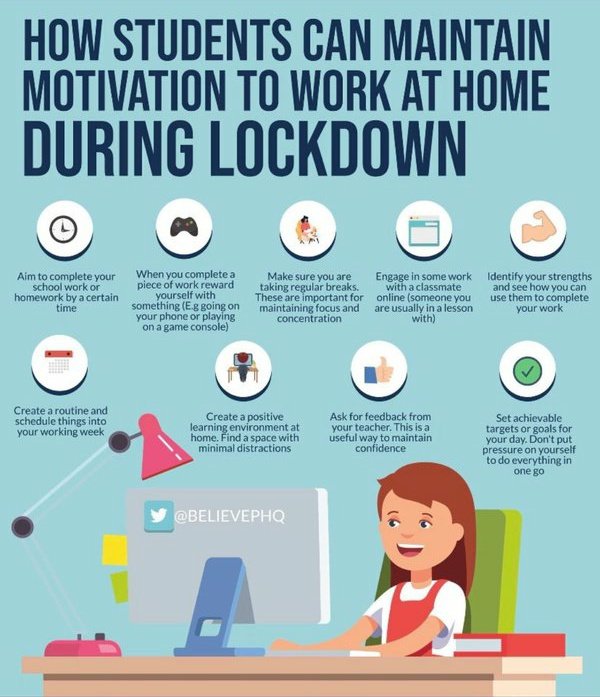 And keep emphasizing that the bread, say, is bought fresh, the dust is wiped clean. And encouragement is needed just like air! It is better for a younger child to openly say that by unloading you, he got the opportunity, for example, to stay longer at the zoo, go to the cinema, and with those who are older, you can already talk about the section of homework "honestly".
And keep emphasizing that the bread, say, is bought fresh, the dust is wiped clean. And encouragement is needed just like air! It is better for a younger child to openly say that by unloading you, he got the opportunity, for example, to stay longer at the zoo, go to the cinema, and with those who are older, you can already talk about the section of homework "honestly".
Homework begins the development in the child of an attitude towards work as a vital necessity. And if over and over again you pulled out a broom from Natasha, who was raising clouds of dust in the apartment, do not be surprised when, having grown up, she can calmly walk past a full sink of dishes and will not strive to take on at least part of the household chores, as they say, "default". And only at home?
Hormonal laziness
The presence or absence of a "motive" explains the behavior of the so-called lazy people at school age as well. Let's start with the fact that a child who avoids lessons in every way most likely simply does not have his own motivation for his most important, one might say, only thing, sincerely not understanding why he himself needs all these lessons, homework, etc. d. Then he gets so used to the constant control of adults that he concludes: "They need it, not me." And he doesn’t seem to be lazy, he is interested in a lot of things, but in school affairs he is a slacker with a slacker.
d. Then he gets so used to the constant control of adults that he concludes: "They need it, not me." And he doesn’t seem to be lazy, he is interested in a lot of things, but in school affairs he is a slacker with a slacker.
Isn't it time for you to relax your petty, minute attention and exactingness? Otherwise, the label "lazy" will become unexpectedly attractive for the child - maybe at least they will leave him behind, because the people around him are still dissatisfied, and the meaningless activity "under pressure" can cause nothing but disgust and the desire to avoid overload. Maybe try to bring the meaning of his work to the child, explain that if he doesn’t know and be able to do anything, no one will need him except his parents. Look for the meaning for which he will aspire to the class. Let it be only communication with peers - and for this you can want to go to school! As soon as the child begins to do what he is interested in, what is important to him, laziness will disappear, and grades will improve.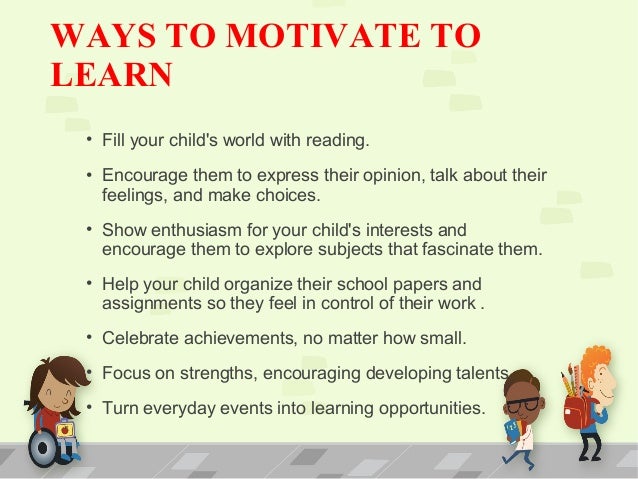
Laziness often turns into an overestimation of a person's talents, and his automatically rising self-esteem. A really smart, capable, overwhelmed child does not want to study, because everything is easy for him, and he considers himself the best in the class and without any extra effort on his part. In parental complaints about the lazy one, one even hears something like admiration - a storehouse of abilities, he would move mountains if he wanted to, but "laziness was born ahead of him." It comforts and relaxes you, and the person is so affirmed in his rightness: he has abilities - so they will manifest themselves without any extra effort on his part. And it would be better if he heard from you that laziness and talent are mutually exclusive concepts and that the first buries the second in the ground.
...Sometimes it seems that teenagers are completely lazy - lying on the couch, sitting in front of the monitor or staggering through the streets. At the same time, they often say that they did not have time to rest, that they need to relax, "retreat". But a person is young, more or less healthy, he does not go to work and is not overloaded with household chores - yes, he plays the fool, shirks, you are sure. And in vain. At a certain age, physiology intervenes in the matter: global changes are taking place in the body of a teenager associated with hormonal changes, and this really causes a constant feeling of fatigue. Instead of blaming him every hour for idleness, start “feeding” him with vitamins, go somewhere together, organize a rest for him yourself if you already want to control your child from and to.
But a person is young, more or less healthy, he does not go to work and is not overloaded with household chores - yes, he plays the fool, shirks, you are sure. And in vain. At a certain age, physiology intervenes in the matter: global changes are taking place in the body of a teenager associated with hormonal changes, and this really causes a constant feeling of fatigue. Instead of blaming him every hour for idleness, start “feeding” him with vitamins, go somewhere together, organize a rest for him yourself if you already want to control your child from and to.
By the way
Proverbs on the topic
- Looking at the forest, you won't grow up, but looking at people, you won't be rich.
- Even if you don't eat for three days, you can't get off the stove.
- We will not go to the forest, and we will freeze on the floor.
- A lazy man is sleeping while lying down and working.
- You can't stretch out your hands, you can't get it off the shelf.

- The lazy spinner does not even have a shirt.
- Sleep long - live with debt.
- What to plow like that, it's better to unharness.
- Lezheboke and the sun does not rise at the right time.
- If there were bread and clothes, I would eat lying down.
- Whatever we do, we'll eat.
Advice to Parents
1 If your child is constantly trying to avoid household chores, school, etc., try to understand whether he is basically capable of the demands you make.
2 Do you often praise or thank someone you think is lazy for what you have done? Please don't forget to do this. It is difficult to engage with passion in a business that no one notices and does not appreciate.
3 In cases where teachers talk about your child's sudden laziness, try to find out all the details, do not rush to scold and punish the person. Perhaps right now he needs help (psychological, medical, additional classes, or, conversely, exemption from studies, finally, just your advice or support), and laziness is a distress signal that you need to notice.
4 You can't force people to be hardworking with threats. Sooner or later the person treated like this will rebel. At the same time, the form of protest can be different (tears, anger, lies, illness, flight), but the essence will be a damaged relationship with the "taskmaster".
How to deal with a child's laziness: practical recommendations for caring parents
<
What is laziness Dahl defines laziness as “aversion from work, from business, occupations; inclination towards idleness and parasitism. The scientist clearly had no love for laziness and considered it a vice.
Biologists give a more neutral definition, calling laziness an excessive implementation of the principle of preserving vital energy. And historians-anthropologists consider laziness one of the reasons for scientific and technological progress.
From the point of view of psychology, laziness is only a symptom, and the motives for not wanting to act lie deeper. Laziness is even divided into several types depending on the cause of occurrence: lack of motivation, psychophysiological characteristics of a person, banal fatigue.
Laziness is even divided into several types depending on the cause of occurrence: lack of motivation, psychophysiological characteristics of a person, banal fatigue.
Laziness in a child
Often parents complain about their children that they are lazy, and everyone puts something different into this concept: does not want to study and do homework, does not go in for sports, does not read books, does not helps with household chores and washing dishes, puts off things for later. Many parents do not try to understand the situation and believe that children's laziness is to blame for bad grades and an untidy room. However, do not forget that children are by nature very active and inquisitive, so do not look for ways to deal with laziness, but try to find out its causes.
How to recognize laziness
In the fight against laziness, the same rule applies as in the fight against any illness: in order to choose the right treatment, you must first diagnose it.-1786232610.jpg) Before giving different “recipes against laziness”, we will announce two rules for its recognition.
Before giving different “recipes against laziness”, we will announce two rules for its recognition.
1. Consider age before starting to fight laziness in a child. From 7 to 12 years old, the reluctance to study can be caused by a banal lack of habit or absent-mindedness. From 12 to 16 years of age, laziness most often has psychological causes: self-doubt, lack of motivation.
2. Talk to your child. Turn on active listening mode and ask your child why he is putting off or refusing to do something. Pay close attention to his words and reasoning, show that you are sincerely interested in his life.
There is no healing pill for laziness that can be “prescribed” to a child and forget about the problem. The fight against laziness in a teenager especially takes time, so don't expect quick results. But the game is worth the candle.
9. The older the student, the tighter the schedule, which can cause laziness in a teenager. If you see that your child is reluctant to take on a new language course or extra assignments from a tutor, consider if he is too overwhelmed.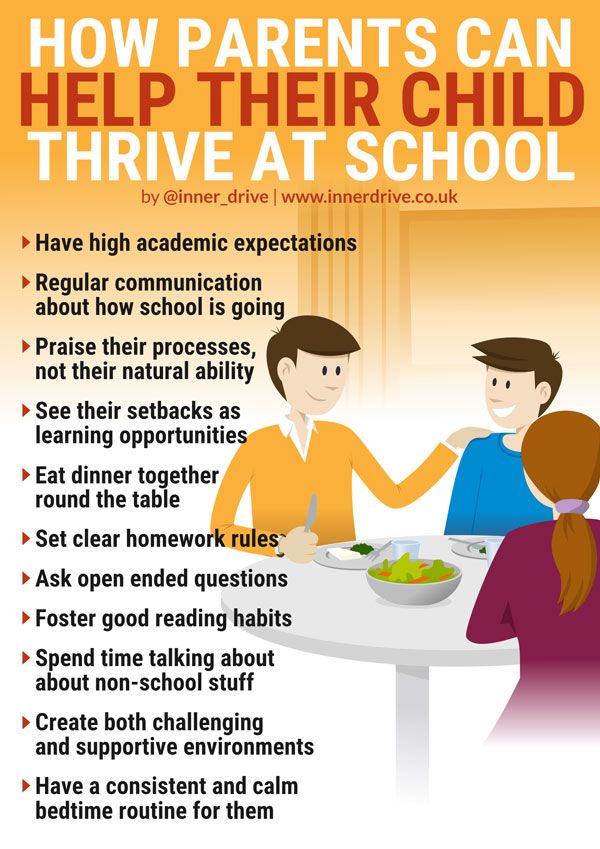
In the schedule of a child, no matter how old he is and no matter how versatile his interests are, there must be time for rest. And for the rest that he likes. Even if a teenager is just lying on the couch, you should not reproach him, drive him out into the street or force him to read a book.
Source: freepik.com / @photoroyaltySolution
Here's how to deal with workload-induced laziness:
- Watch your child's schedule for a few days. Does he have time to rest? If not, the schedule should be revised.
- Get your sleep and rest routine in order. For proper development, a child of 8-13 years old needs at least nine hours of sleep, and a teenager of 14-18 years old needs at least eight. Healthy eating and outdoor walks (at least an hour a day) are also important. If these conditions are not met, the body may react in the form of laziness and apathy.
- Help your teenager organize his day.
 Teach him to keep a diary, make to-do lists, and prioritize. At the senior school age, more complex time management tools can be introduced: strategic planning, applications for counting time and improving efficiency.
Teach him to keep a diary, make to-do lists, and prioritize. At the senior school age, more complex time management tools can be introduced: strategic planning, applications for counting time and improving efficiency.
Weak willpower
This cause of laziness in children is typical for primary and secondary school age. Especially if the child was not taught to work, was not involved in housework or errands. From adolescents, for whom adults do everything, unfortunately, parasitic personalities often grow up.
Stanford professor Kelly McGonigal compares willpower to a muscle. And only regular training helps to develop muscles, one desire is not enough here.
Source: freepik.com / @serhii_bobykDecision
- Do not insult or make fun of the child. If you constantly call a teenager a quitter, he will willingly follow this role. Remember the muscles: athletes constantly train, and do not engage in self-flagellation.

- Encourage your child to play sports. Sport pumps the habit of overcoming oneself, striving for results, and working with dedication. It is important to choose a sport that will be to your liking and strength.
- Create habits. Doing something regularly is another way to train and strengthen that “willpower muscle”. Do not immediately agitate the child to run in the morning - start with small simple habits. For example, five minutes of exercise in the morning, a contrast shower, weekly cleaning of the room. The main thing is not duration, but regularity in the fight against laziness.
- Consider your child's individual needs. Among children, as well as among adults, there are owls and larks, sanguine and phlegmatic. For example, it is difficult for a choleric person to do painstaking work, and it is difficult for an owl to perceive new material in the morning. Try to direct the features of biorhythms and temperament of your child to his benefit.

- Make an individual plan for developing willpower in a lazy teenager. Just be sure to accompany your child. After all, we are talking about his strength and his will. As with time management, tools need to be selected by age.
“Nothing in the world can replace perseverance. He cannot be replaced by talent - you will not meet anyone as often as a talented loser. It cannot be replaced by genius - unrecognized geniuses are almost proverbial. Education alone is also not enough - the world is full of educated outcasts. Only perseverance and determination are all-powerful. The phrase "work on" was and remains the solution to all the problems of the human race."
Calvin Coolidge, 30th US President
Lack of motivation
Neither time management nor the most correct mode will help if a person does not like what he is doing. Motivation is the key to a person's success in any business, and its level can be influenced.
Solution
- Help your child focus on what interests them. Talk heart to heart and listen carefully, and then think about how to bring the education of the child in line with his interests. The Foxford home online school has individual learning paths: mathematics, physics and mathematics, technology, humanities and linguistics, and others. In them, the student can dive deeper into those objects in which he feels like a fish in water. A tutor helps to choose a profile that matches the hobbies and abilities of the child. This is a specialist in the field of career guidance and building resource maps. When a child does what he is successful at and what he likes, he develops “success zones” that balance dislike for certain subjects, and this helps fight laziness in a teenager.
- If the child is too lazy to study, explain the importance of a well-rounded education. Success zones are wonderful, but no one has canceled the Unified State Examination in mathematics for the humanities.
 At least at a basic level, but this science needs to be mastered by everyone. Teenagers sometimes take education too literally: “If I have already decided that I will make music, why should I be able to solve equations?”. It is important to explain the meaning and benefits of an unloved subject. You can stock up on arguments in favor of a particular discipline in TED video lectures.
At least at a basic level, but this science needs to be mastered by everyone. Teenagers sometimes take education too literally: “If I have already decided that I will make music, why should I be able to solve equations?”. It is important to explain the meaning and benefits of an unloved subject. You can stock up on arguments in favor of a particular discipline in TED video lectures.
- Give correct examples. This method is well suited for lazy teenagers, who, due to problems with peers, falling in love, and other experiences, may lose their motivation to study altogether. Teenagers love success stories and admire people who have achieved great things in their field. For example, the engineering genius Elon Musk, despite his busy schedule, constantly devotes time to self-education and reading books. Popular actress Emma Watson has put her acting career on hold in order to graduate from university. Billionaire Richard Branson calls daily reading books the best investment in yourself.
 Show on the biographies of popular people that the love of knowledge and self-development is an indispensable companion of success.
Show on the biographies of popular people that the love of knowledge and self-development is an indispensable companion of success.
Fear of failure
Sometimes a teenager's laziness hides a fear of failure: the child is afraid of losing, of failing and prefers to simply do nothing. The habit of “burying your head in the sand” will bring more and more problems over the years, so you need to get rid of it urgently.
Source: freepik.comSolution
- Enlist the support of an authoritative person for the child. If for a schoolboy of 10-12 years old you are still the wisest and most knowledgeable, then a teenager of 13-16 years old is often more influenced by older brothers and sisters, adult friends, counselors in the camp. At the Foxford home online school, mentors come to the rescue. As a rule, these are students and recent graduates of universities who constantly interact with children. Often mentors become friends and role models.
 Support, sincere praise and interest from such a person will help raise the child's self-esteem and cope with his laziness.
Support, sincere praise and interest from such a person will help raise the child's self-esteem and cope with his laziness.
- Talk to a psychologist. A specialist will help to understand the causes of procrastination and effectively deal with the laziness of a teenager. The Foxford home online school also has its own psychologist who can help the child analyze and optimize their learning process.
- Support the child. There is no substitute for a parent's attention. No matter how busy you are with work, be sure to find a couple of hours to communicate with your child, be sincerely interested in his success and listen carefully to his stories.
- Talk about the benefits of failure. The whole of human history suggests that success is achieved not by those who make the least mistakes, but by those who are not afraid of mistakes and learn from them.
"Success is the ability to go from failure to failure without losing enthusiasm", Sir Winston Churchill, Prime Minister of Great Britain
Conclusions
Finally, let's repeat the main theses of what to do if a child is lazy: 9005
- Before fighting laziness, you need to understand the causes of its occurrence.













